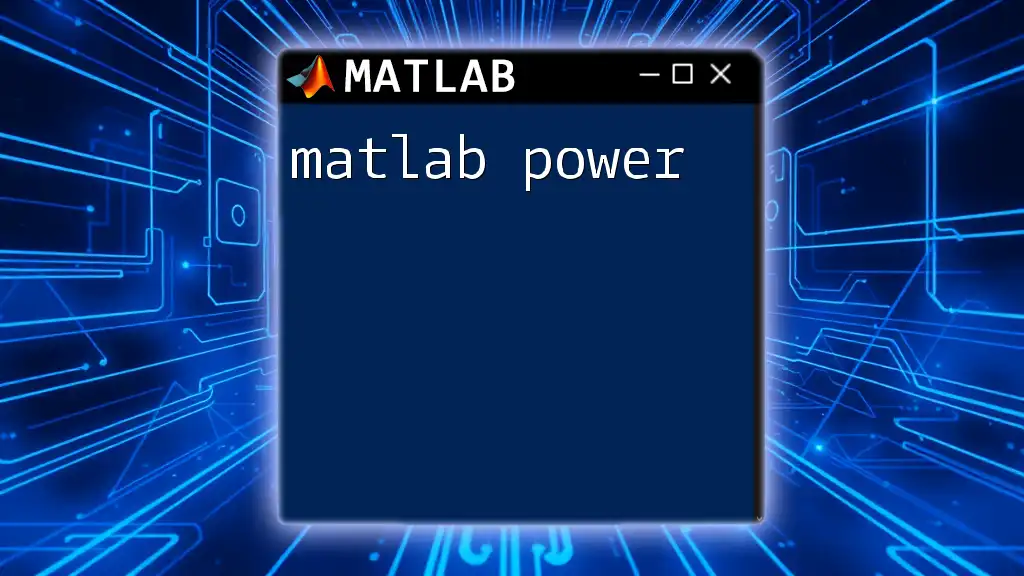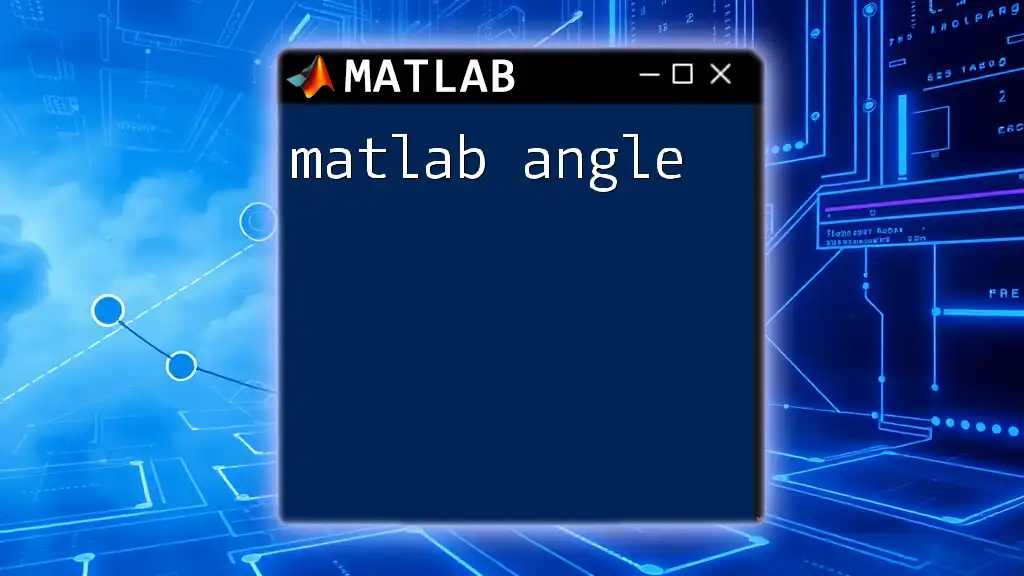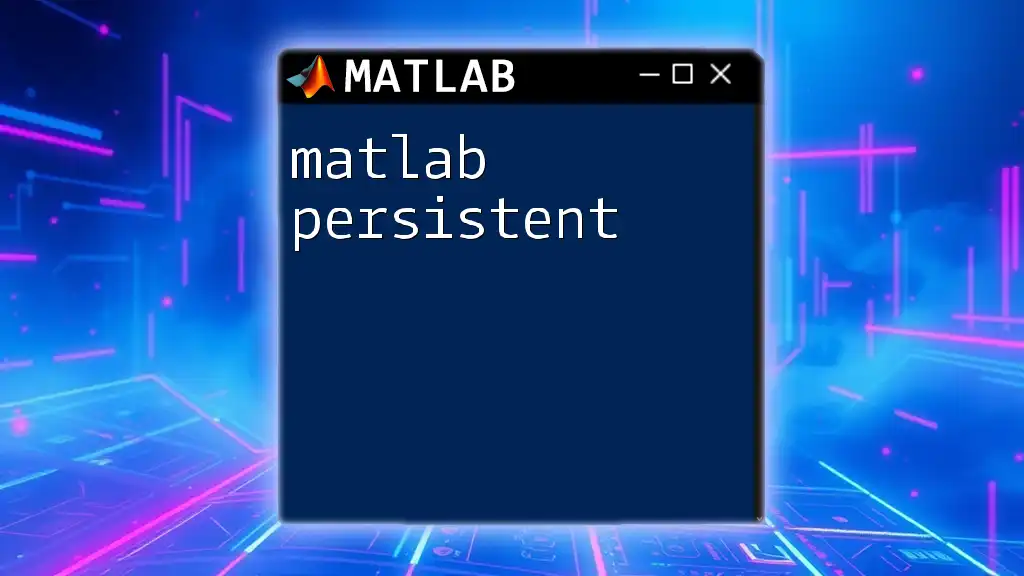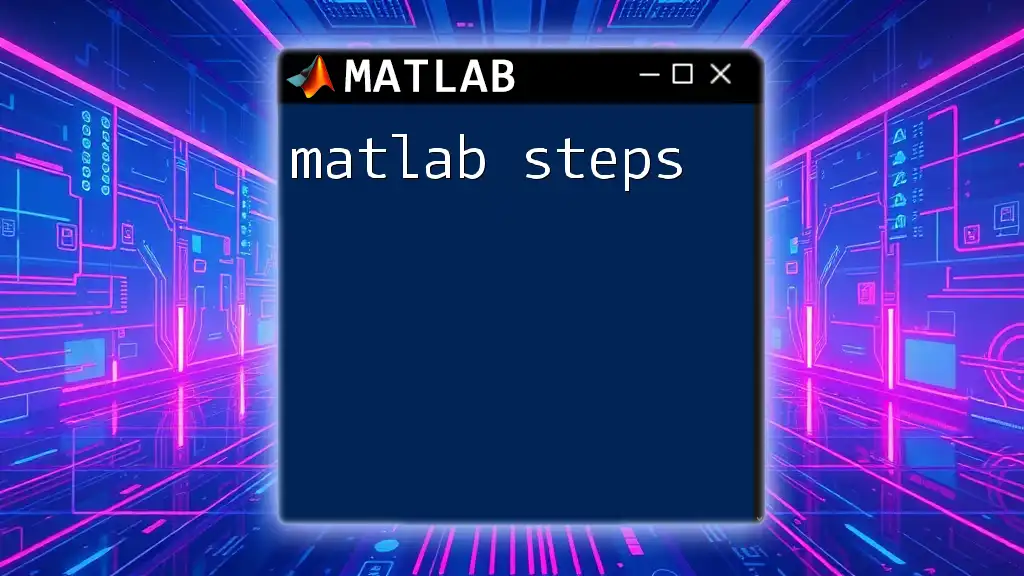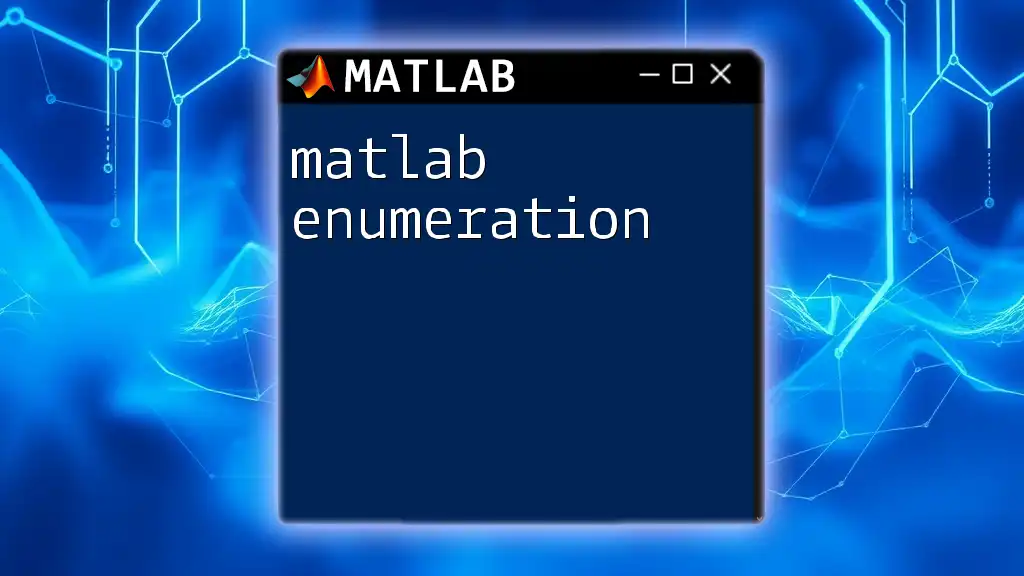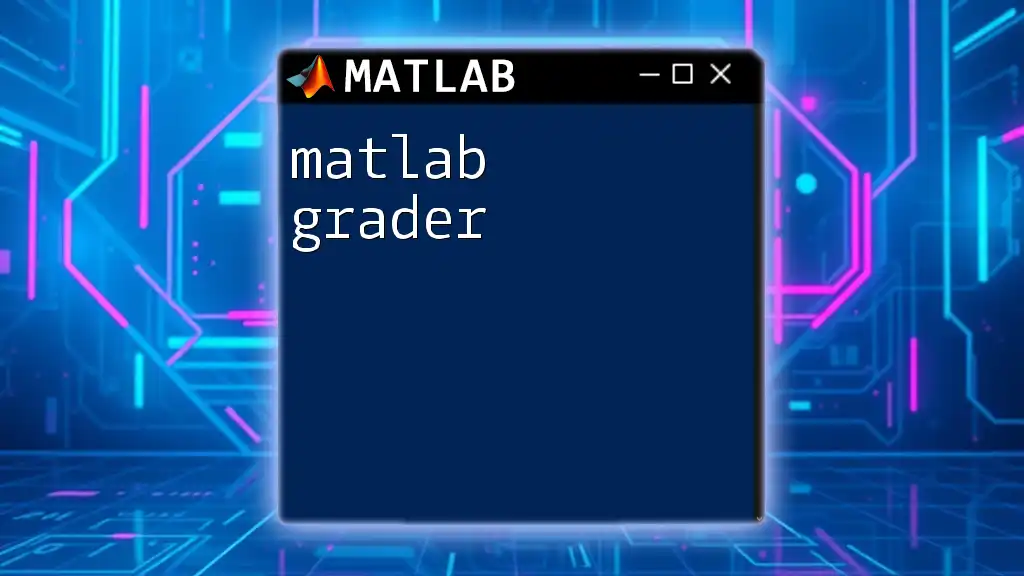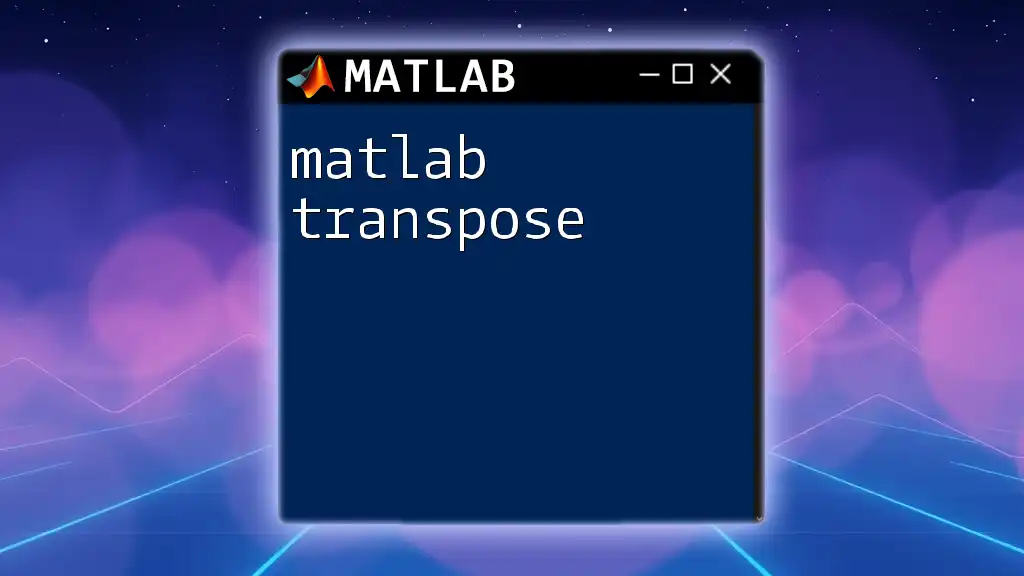"MATLAB answers" refers to concise solutions or commands that help users efficiently solve problems or perform tasks within the MATLAB environment.
% Example of finding the roots of a quadratic equation ax^2 + bx + c = 0
a = 1; b = -3; c = 2; % coefficients
roots = roots([a, b, c]); % calculate roots
disp(roots); % display the roots
What is MATLAB Answers?
MATLAB Answers is a vibrant online platform that allows users to ask questions, share insights, and solve problems related to MATLAB programming. As a community-driven resource, it serves as a go-to space for beginners and seasoned developers alike, enabling collaboration and knowledge sharing.

Benefits of Using MATLAB Answers
By participating in MATLAB Answers, users can reap numerous benefits. Accessing a pool of information from a vast community empowers users to find quick solutions and learn from others' experiences. It effectively speeds up the problem-solving process by connecting users to experts who may have faced similar challenges.
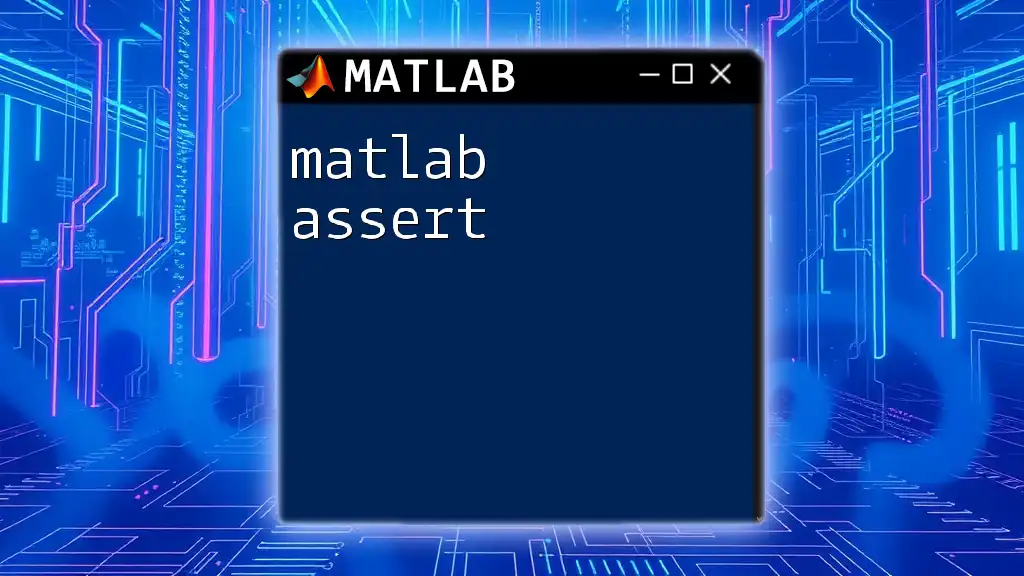
Navigating MATLAB Answers
Creating an Account
To fully leverage the features available on MATLAB Answers, it is essential to create an account. The registration process is straightforward:
- Visit the MATLAB Answers website.
- Click on the “Sign Up” option.
- Provide the required information, including a valid email.
Having an account allows you to post questions, track previous inquiries, and engage actively with the MATLAB community.
Using the Search Functionality
One of the pivotal features of MATLAB Answers is the search capability. To maximize your efficiency, focus on:
- Using relevant keywords: Instead of general terms, consider specific phrases related to your query.
- Applying filters: Sort results by relevance, date, or accepted answers to find exactly what you need.
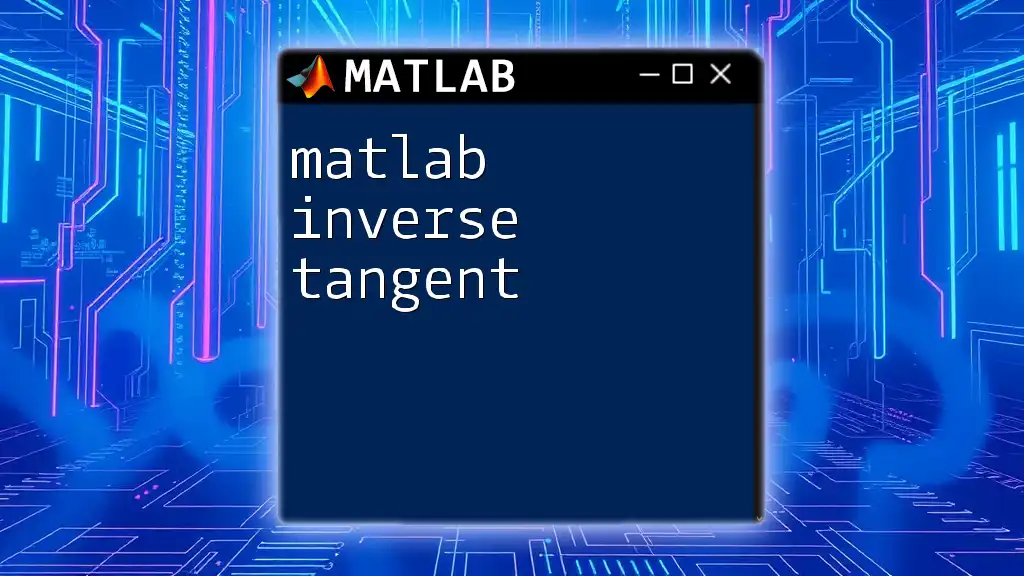
Posting a Question on MATLAB Answers
Crafting a Clear and Concise Question
When you seek help, the clarity of your question is critical. Aim to be precise about the issue you are facing. For instance, compare these two examples:
- Poorly framed question: "Why is my code not working?"
- Well-crafted question: "I'm trying to plot a sine wave in MATLAB, but I receive an error. Here’s my code:"
Including Relevant Details
Providing context helps others to assist you more effectively. Include:
- Detailed context: Explain what you are trying to achieve with your code.
- Code snippets: Share the pertinent sections of your code to illustrate the problem. For example:
x = 0:0.01:10; % Creating an array of values
y = sin(x); % Computing the sine of the array
plot(x, y); % Plotting the result
Don’t forget to mention your MATLAB version and any specific toolboxes you are using.
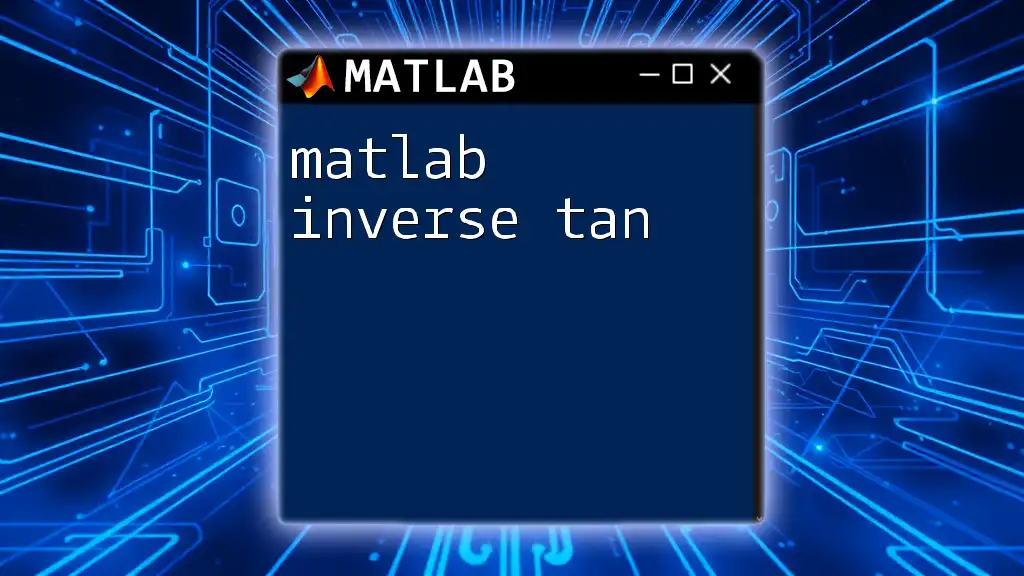
Engaging with the Community
Responding to Answers
Once your question is posted, you’ll likely receive responses. Acknowledging helpful responses not only shows gratitude but can also lead to further insights. If a response doesn’t fully address your question, feel free to ask follow-up questions for clarification.
Upvoting and Marking Answers as Accepted
To encourage community engagement, consider upvoting helpful answers. This gesture rewards contributors and helps other users identify quality responses. If a particular answer resolves your issue, mark it as accepted. This practice enhances your reputation within the community and guides future users.
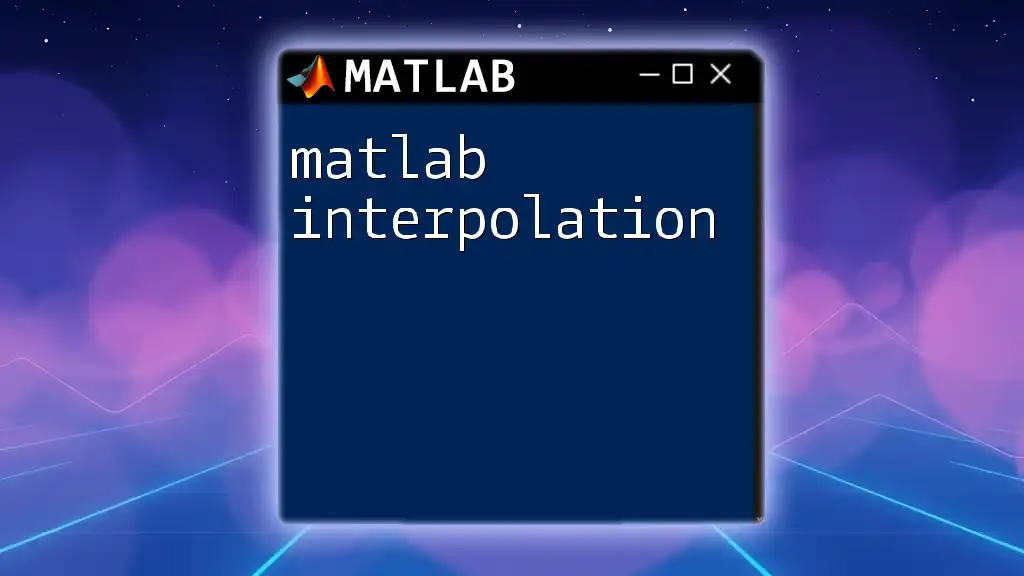
Searchable Topics and Tags
Understanding Tags in MATLAB Answers
Tags help in categorizing questions, making it easier for users to discover them. When posting a question, choose relevant tags that reflect your topic.
Common Tags and Categories
Some frequently used tags on MATLAB Answers include:
- Plotting
- Matrices
- Statistics
- Image Processing
Selecting the right tags increases the likelihood of your question being seen by those who can assist you.

Frequently Asked Questions on MATLAB Answers
What Types of Questions are Appropriate?
MATLAB Answers encourages questions about various topics such as coding inconsistencies, debugging tips, and best practices in programming. Ideal inquiries provide enough detail for others to understand your situation.
What Not to Ask?
Avoid posting questions that are too broad or lack effort. For instance, simply asking "How do I use MATLAB?" does not engage the community meaningfully. Instead, demonstrate some groundwork you’ve done and ask for guidance on specific issues.

Case Studies: Real Examples from MATLAB Answers
Analyzing Successful Q&A Threads
Looking at successful Q&A threads can provide insight into effective communication. For instance, a user might ask a technical question clearly and follow up effectively with the community. An excellent example is when users post clear screenshots of errors, coupled with snippets of their code.
Learning from Responses
Exemplary answers often include step-by-step explanations that walk the questioner through the problem, providing additional context or alternative methods. Evaluate these responses as they can improve your understanding and coding skills.
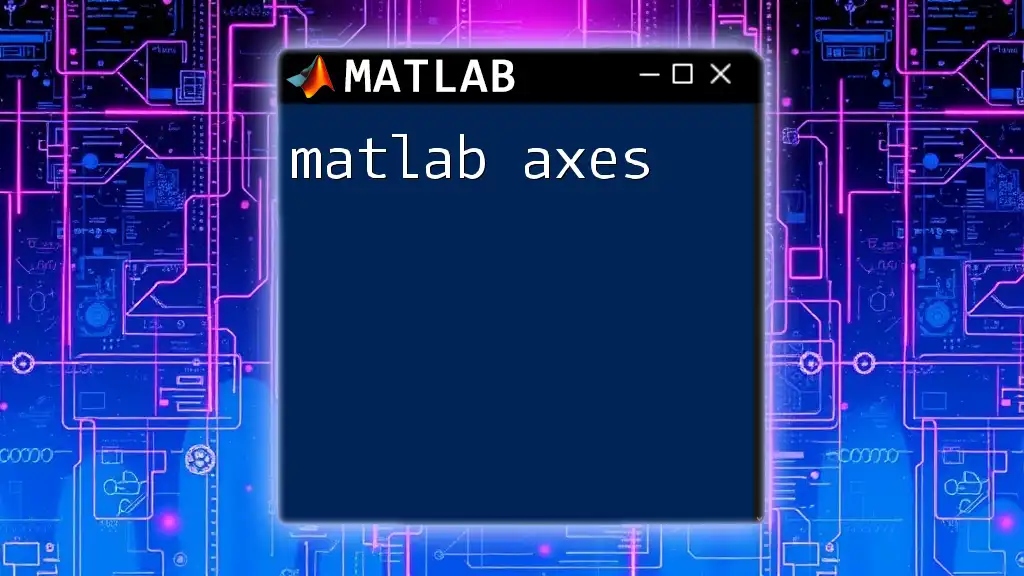
Conclusion
In summary, MATLAB Answers is an invaluable platform for anyone looking to solve problems or enhance their programming skills. As you participate in this community, remember to engage actively by asking clear questions and providing context. The more you contribute, the more you will learn.
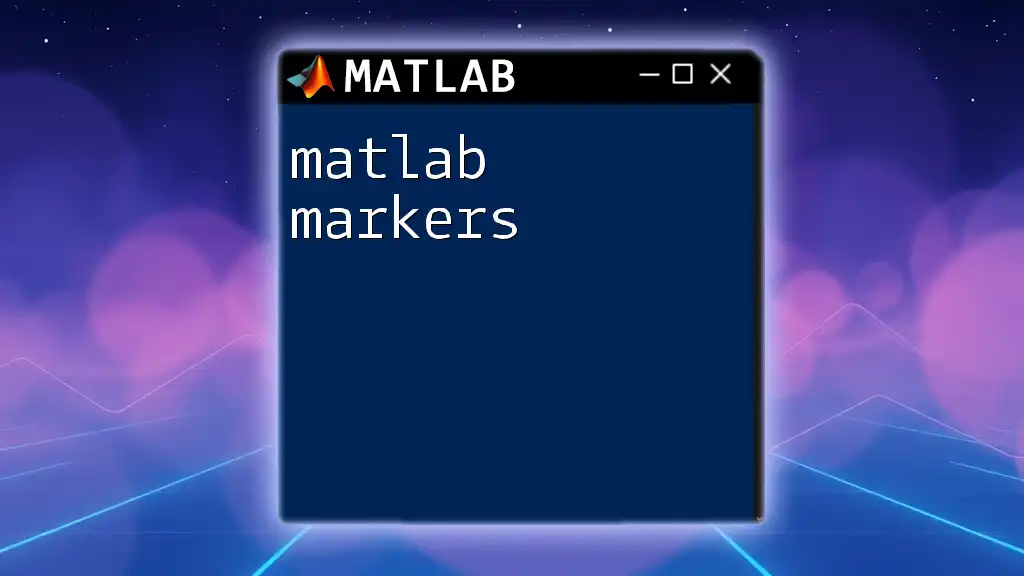
Additional Resources
To further complement your journey with MATLAB, consider exploring the official MATLAB documentation and tutorials. Moreover, other platforms like Stack Overflow and MATLAB Central can offer additional insights and avenues for learning beyond MATLAB Answers.







